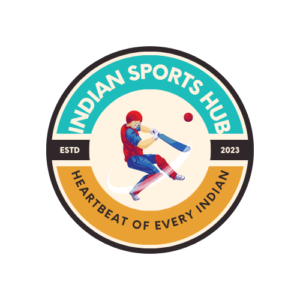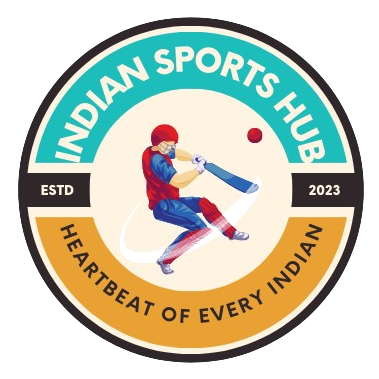In the fast-evolving world of fitness and sports, staying ahead of the curve is essential for athletes looking to optimize their performance. The year 2023 brings a myriad of trends that cater to the diverse needs of athletes. From cutting-edge technologies to holistic health approaches, let’s delve into the fitness landscape that awaits.
Emerging Fitness Technologies
The Rise of Wearable Tech
Wearable technology has become synonymous with modern fitness. Athletes can now track their every move, from heart rate to sleep patterns, using advanced wearables. This data-driven approach provides valuable insights for personalized training programs.
Virtual Reality Workouts
The immersive experience of virtual reality is making waves in the fitness industry. Athletes can now enjoy simulated environments, enhancing their workout routines. Virtual reality workouts not only add an element of fun but also contribute to mental focus during training.
Nutritional Trends for Athletes
Plant-Based Diets
Plant-based diets are gaining traction among athletes for their touted benefits in recovery and performance. Incorporating more plant-based foods into the diet can provide essential nutrients while reducing inflammation and promoting overall well-being.
Personalized Nutrition Plans
Athletes are increasingly turning to personalized nutrition plans tailored to their unique dietary needs. From DNA-based diets to specialized meal delivery services, personalized nutrition is revolutionizing how athletes fuel their bodies.
Mind-Body Connection
Incorporating Meditation and Yoga
Recognizing the importance of mental wellness, athletes are integrating practices like meditation and yoga into their routines. These activities not only enhance flexibility and balance but also contribute to a balanced mind, crucial for peak performance.
Importance of Mental Wellness
Beyond physical prowess, mental wellness is now a focal point in athlete training. Techniques such as mindfulness and visualization are being employed to strengthen the mind-body connection, ensuring athletes are mentally resilient in the face of challenges.
Functional Fitness Training
Focus on Functional Movements
Functional fitness, emphasizing movements that mimic real-life activities, is gaining popularity. Athletes are shifting towards exercises that improve overall strength, flexibility, and coordination, translating to better performance in their respective sports.
High-Intensity Interval Training (HIIT)
HIIT remains a staple in fitness trends, offering time-efficient yet highly effective workouts. Athletes benefit from the intense bursts of activity followed by short rest periods, promoting cardiovascular health and calorie burning.
Social Fitness Communities
The Impact of Social Media on Fitness
Social media continues to shape fitness trends by connecting athletes worldwide. Platforms like Instagram and TikTok showcase workout routines, fostering a sense of community among athletes and providing inspiration for new training methods.
Virtual Fitness Challenges
Athletes are embracing virtual challenges, competing with peers globally. These challenges not only add a competitive edge but also create a supportive community, encouraging athletes to push their limits.
Sustainable Fitness Practices
Eco-Friendly Workout Gear
Environmental consciousness extends to fitness, with athletes opting for eco-friendly workout gear. Sustainable materials and ethical production methods are becoming key considerations in choosing athletic apparel.
Green Gyms and Eco-Conscious Workouts
Fitness facilities are adopting eco-conscious practices, from energy-efficient equipment to sustainable building materials. Green gyms aim to reduce their environmental footprint while promoting a healthy lifestyle.
Recovery and Regeneration
Advanced Recovery Techniques
Athletes are exploring advanced recovery techniques to optimize performance. From cryotherapy to compression therapy, these methods aid in faster muscle recovery, reducing the risk of injuries and enhancing overall athletic longevity.
Importance of Sleep for Athletes
Quality sleep is recognized as a crucial component of an athlete’s routine. Sleep aids in recovery, hormone regulation, and cognitive function, making it a non-negotiable aspect of any athlete’s training program.
Holistic Health Approaches
Integrative Medicine in Sports
The integration of alternative and traditional medicine is gaining acceptance in the sports community. Athletes are turning to integrative medicine practices like acupuncture and chiropractic care to address injuries and promote overall well-being.
Holistic Fitness Retreats
Holistic fitness retreats offer athletes a comprehensive wellness experience. These retreats focus on physical, mental, and emotional aspects, providing a rejuvenating space for athletes to recharge and gain new perspectives.
Adaptogen Supplements
Understanding Adaptogens
Adaptogens, herbs known for their stress-reducing properties, are becoming popular supplements for athletes. These natural substances help the body adapt to stress, supporting overall resilience and performance.
Benefits for Athletes
Athletes incorporating adaptogens into their routines report improved stress management, enhanced energy levels, and better recovery. These supplements offer a natural and holistic approach to supporting the body’s response to physical and mental stressors.
Inclusive Fitness
Diverse Representation in Sports
The push for diversity and inclusivity in sports is reshaping the landscape. Athletes from various backgrounds and abilities are gaining recognition, promoting a more inclusive and representative image of athleticism.
Accessible Fitness Programs
Fitness programs are evolving to be more accessible to individuals with diverse needs. Adaptive workouts and inclusive training spaces are becoming standard, ensuring that everyone, regardless of physical abilities, can participate in and benefit from fitness activities.
The Impact of Artificial Intelligence
AI-Powered Training Programs
Artificial intelligence is revolutionizing athlete training. AI-powered programs analyze performance data to create personalized training plans, adapting to individual strengths and weaknesses for optimal results.
Data-Driven Performance Enhancements
Data-driven insights from AI are invaluable in identifying areas for improvement. Athletes can fine-tune their training regimens based on real-time data, leading to more efficient and effective performance enhancements.
Personal Coaching and Online Training
Benefits of Personalized Coaching
Athletes are recognizing the benefits of personalized coaching. Working closely with a coach allows for tailored guidance, addressing specific needs and goals, ultimately maximizing performance potential.
Online Training Platforms
The digital age has ushered in a new era of training through online platforms. Athletes can access personalized workouts, coaching sessions, and nutrition advice from the comfort of their homes, offering flexibility and convenience.
Challenges and Considerations for Athletes
Balancing New Trends with Traditional Approaches
While embracing new trends, athletes must strike a balance with proven, traditional approaches. Incorporating the latest technologies and practices should complement, not replace, fundamental training principles.
Potential Risks and Drawbacks
As with any trend, there are potential risks and drawbacks. Athletes should be mindful of overreliance on certain practices, ensuring that new trends align with individual needs and contribute positively to overall well-being.
Conclusion
In the dynamic world of fitness, 2023 brings a wealth of opportunities for athletes to enhance their performance. By embracing emerging technologies, prioritizing mental wellness, and incorporating sustainable practices, athletes can stay at the forefront of the fitness landscape. The key lies in finding a personalized approach that aligns with individual goals and values.
FAQs
Are plant-based diets suitable for all athletes?
Plant-based diets can be beneficial for many athletes, but individual nutritional needs vary. It’s essential to consult with a nutritionist for personalized advice.
How can athletes benefit from virtual reality workouts?
Virtual reality workouts offer a novel and engaging experience, enhancing focus and motivation during training. They can contribute to mental resilience and improved performance.
What are adaptogens, and how do they support athletes?
Adaptogens are natural herbs that help the body adapt to stress. Athletes may experience improved stress management, increased energy, and better recovery with adaptogen supplements.
Is AI-powered training suitable for all athletes?
AI-powered training can be beneficial for many athletes, but individual preferences and training styles should be considered. It’s advisable to integrate AI with personalized coaching for optimal results.
How can athletes maintain a balance between new trends and traditional approaches?
Athletes should approach new trends with a discerning eye, ensuring they complement, rather than replace, proven traditional training methods. A balanced approach is key to long-term success.



